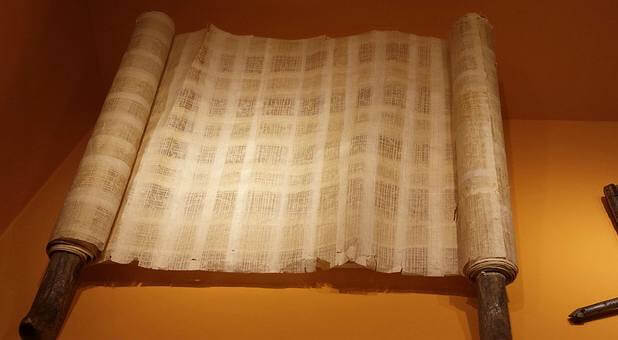Most Christians don’t know that Christmas was set on Dec. 25, the ancient Roman winter solstice date, to displace a pagan holiday celebrating the birth of a pagan false “seed of woman” god. While the winter solstice is an important element in the celestial signs of Christ’s Advent, careful study of the Scriptures, history and astronomy prove that He could not have been born on Dec. 25.
The Bible does not tell us when Jesus was born. However, the search for His birthdate can begin with strong scriptural evidence about the year of His birth.
We know from Luke 3:23 that Jesus was about 30 when He began His ministry. The prophet Daniel tells us the year of Christ’s anointing would come in 69 7s, or 483 years, after the decree which sent Ezra to Jerusalem in 458 BC. (Dan. 9:25) Doing the math, and remembering that there is no year “0”, Daniel’s prophecy says Jesus would begin His ministry in A.D. 26. This year is backed up by two dates from Scripture. John the Baptist began his ministry in the 15th year of Tiberius, A.D. 25 (Luke 3:1), and Jesus cleared the temple the first time 46 years after Herod began renovating it (John 2:20) in 20 B.C. (according to Josephus), or A.D. 27. Thus many Bible scholars believe that A.D. 26 is the year Jesus began his ministry. If He was 30 years old, remembering again that there is no year 0, He would have been born in 5 B.C.
Jesus would have been born either in the spring or fall of the year according to the Scripture surrounding the birth of John the Baptist. John’s father, Zechariah, was a member of the priestly order of Abijah (Luke 1:5) which, according to rabbinical sources, ministered at the temple in May and November. The Angel Gabriel appeared to Zechariah in the temple, and Zechariah would have gone home and probably conceived John the Baptist in June or December, so John would have been born nine months later in March or September. We know from Scripture that John the Baptist was six months older than Jesus (Luke 1:26), so Jesus would have been born in September or March of 5 B.C.
To find the exact time of year, we look to astronomy and history. We know that there was a star which appeared when Jesus was born and that Magi from the East, possibly following the prophetic teachings of Daniel the Magi (Dan. 2:48), came looking for Him (Matt. 2:1,2). The Chinese also saw the star, identifying it as a nova, which appeared in the spring of 5 B.C. and burned for 70 days. Based on the 5 B.C. springtime appearance of the star of Bethlehem, John the Baptist was conceived in December of 7 B.C., Jesus was conceived in June of 6 B.C., John the Baptist was born in September of 6 B.C. and Jesus was born in March of 5 B.C.
King Herod, the tyrannical ruler of Judea, had interviewed the Magi when they arrived in Jerusalem. According to our research, described in our book The Stars of His Coming, (available at Starbiblesociety.com) there were signs in the sun, moon and stars surrounding the birth of Jesus beginning with Zechariah in 7 B.C. The Magi would have testified to the same date, and for that reason, Herod ordered all of the children under 2 years old in Bethlehem to be killed. Josephus tells us that there was a lunar eclipse on Passover and that Herod died later that year. This lunar eclipse, or blood moon, occurred on March 23, 5 B.C. The blood moon occurred in the spring of 5 B.C., concurrent with the star of Bethlehem, but one additional piece of evidence is needed to suggest that this is the day Jesus was born.
We find it in Revelation 12:1-2, which describes a sign in the heavens, a woman clothed in the sun with the moon at her feet, at the moment of Christ’s birth. The woman clothed in the sun is the zodiacal constellation Virgo (the virgin), which promises that God will send a Savior through virgin birth. Astronomical research shows that the blood moon of March 23, 5 B.C. occurred while the moon was in the feet of Virgo. Thus, Revelation 12:1-2 presents us with a picture of the night sky when Jesus was born, and that night was March 23, 5 B.C.
Of course, we know that the whole world will continue to celebrate the birthday of Jesus on Dec. 25. In its way, it is fitting to celebrate the Advent on the old Roman winter solstice, when it all began with the conception of John the Baptist around the winter solstice of 7 B.C. and signs in the sun, moon and stars began to appear. For more information, view our YouTube presentation “The Story of the Star of Bethlehem” at International Star Bible Society.
So on the ancient Roman winter solstice date of Dec. 25, you’re really celebrating the beginning of the “signs in the sun, moon and stars” in 7 B.C., which led to Christ’s birth on Passover, March 23, 5 B.C.
Merry Christmas!
















































